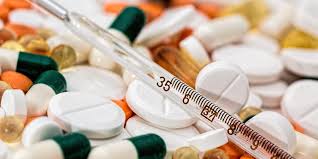Many of us struggle with different addictions; for some people, it is drugs, and for others, it could be sex.
Addiction is when you cannot do without something, and your whole existence depends on that particular thing.
Did you know that addiction is now considered a disease? Various researchers have come to a deeper understanding of the term. It is now classified as a disease that affects the brain, not a personal failure or choice.
There are several types of addiction, but the focus of this article is on substance addiction. Also called drug addiction, it affects a person’s brain and behavior and leads to an inability to control the use of a legal or illegal drug or medicine.

Drug addiction can start with the experimental use of a recreational drug in social situations, and, for some people, it becomes more frequent. Some can also take drugs to fix a particular problem in their lives.
Occasionally, alcohol and drugs have been treated as a form of escapism.
SEE: Pornography Addiction: Is There Hope?
Signs and symptoms of substance abuse or addiction
Symptoms generally include feeling that you have to use the substance regularly. Having intense urges for the drug that block out any other thoughts.
Symptoms can also show visibly and add to one’s personal appearance. Bloodshot or red eyes and pinpoint or dilated pupils are physical signs of substance abuse, as well as affected skin color and texture. Frequent abnormal puffiness or washed-out color can also indicate abuse of drugs or alcohol.
Many forms of substance abuse come with small behavioral changes that might be dismissed as “tics.”
These include
- Impulsive pulling down of sleeves to hide marks of abuse
- itching in a specific area of the body
- Slurred and delayed speech
- Frequent sniffling
It can be an obvious indicator if you find questionable equipment in someone’s possession. Some common items include:
- Cigarette wrapping papers
- Empty bottles
- Syringes
- Rolled up bank notes
- Lighters
- Burnt spoons or bottle caps
- Bongs
READ: Masturbation: Everything You’re Too Afraid To Ask (18+)
List of Addictions to Substances
- Alcohol
- Tobacco
- Opioids such as heroin.
- Prescription drugs (sedatives, hypnotics, or sleeping pills and tranquilizers)
- Cocaine
- Cannabis
- Hallucinogens
- Inhalants
SEE ALSO: How To Handle Coming Out as Gay In Nigeria
How to handle substance addiction
First of all, one needs to realize that developing an addiction to drugs isn’t a character flaw or a sign of weakness, and it takes more than willpower to overcome the problem.
Some say that the next step is challenging; that is, recognizing that you have a problem and deciding to make a change.
One needs to take off all reminders of addiction in the home – alcohol, nonprescribed medications, hard drugs, and everything else. You will also need to cut ties with everyone who enables your bad habits, and then look at your treatment options.
Detoxification is what most people use. This purges the body of drugs and manages withdrawal symptoms. Individual, group, and/or family therapy can assist to identify the causes of your substance use and to learn healthier coping skills.
Treatment programs like drug rehabilitation work to treat the addictive behaviors. The general reason for this program is to enable the patient to confront substance dependence, and stop substance misuse to avoid the psychological, legal, financial, social, and physical consequences.
Medication may be used to manage withdrawal symptoms, prevent relapse.
Cognitive behavioral therapy is another important session therapy. This type of therapy can help a person identify triggers for substance impulses and ultimately teach them how to alter behaviors.
Certain drugs such as antidepressants might also help alleviate urges.
SEE: Cancel Culture: An Organized Kind of Chaos
Conclusion
Although this is one of the main addictions that people mostly face, there are lots more that we will still treat. If you have a loved one suffering from a particular substance addiction, consider the treatment options and choose which is best for you.
